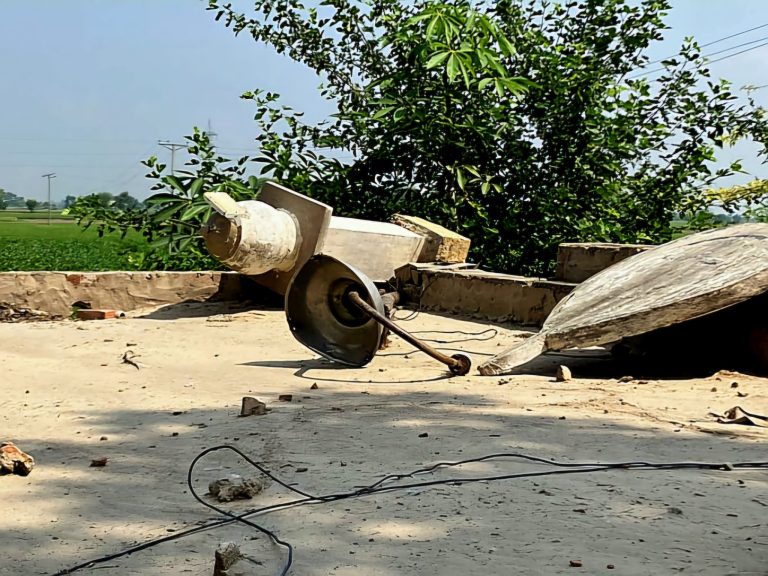While addressing a press conference at the UN in March 2023, Pakistan’s then Foreign Minister Bilawal Bhutto Zardari lamented that “We face a particularly uphill task to try and get Kashmir onto the centre of the agenda at the United Nations.” Given the fact that Pakistan continues to repeatedly peddle its monotonous Kashmir narrative with missionary zeal, the Bhutto-Zardari scion’s admission raises the obvious question- why doesn’t Islamabad’s extraordinary effort to garner international support for its take on Kashmir succeed?
The answer isn’t too hard to find.
The biggest negative in Pakistan’s Kashmir narrative is that rather than being based on a holistic analysis of facts and logical deductions thereof, it’s a typical product of cherry-picking as well as relies heavily on presumptions and is thus fraught with inaccuracies and distortions. To make matters worse, Islamabad is under the wrong impression that rhetoric and bombast can make up for the factual deficiencies of its Kashmir narrative. This explains why Pakistan’s Kashmir discourse doesn’t find many takers.
Peddling Disinformation
Despite its weak position on the Kashmir issue, Islamabad probably believes in the “repeat a lie often enough and it becomes the truth” hypothesis propagated by Nazi Germany’s infamous Propaganda Minister Joseph Goebbels. However, many analysts feel that while Islamabad knows that its Kashmir narrative is untenable, domestic compulsions force it to keep raking up this issue. Whatever be the reason, Pakistan needs to be complimented for not giving up.
Pakistan’s Foreign Office [FO] supported by Pakistan Army’s spy agency Inter Services Intelligence [ISI] continue to work overtime in peddling Islamabad’s weak Kashmir narrative. Islamabad has in the past used a variety of means like sending parliamentarians to various countries to to apprise them about alleged human rights abuses in J&K” and even organising a fully paid trip for a US Senator to Pakistan occupied Jammu and Kashmir [PoJK].
On its part, ISI has contributed substantially by ‘cultivating’ people of Kashmiri origin like Kashmir to lobby on behalf of pro-Pakistan separatist groups in Kashmir as well as Government of Pakistan. Readers would recall that in 201, Kashmir born founder of American Council Ghulam Nabi Fai pleaded guilty for concealing the receipt of USD 3.5 million from ISI to lobby and influence the US Government on siding with Islamabad on the Kashmir issue.
Pakistan’s ‘Disputed Territory” Claim
Pakistan’s Kashmir narrative is based on two assumptions. One, J&K is a UN recognised “disputed territory” and as such it’s not an integral part of India; two, the Kashmir issue needs to be resolved in accordance with UNSC resolutions that envisage holding a plebiscite to ascertain whether people of J&K wish to stay with India or merge with Pakistan and this makes Islamabad a stakeholder.
Purely for the sake of progressing discussion on this issue let’s for a moment, accept Pakistan’s narrative of J&K being “disputed territory.” It’s common knowledge that as long as an asset is disputed, the parties involved have no ownership rights over the same. Hence, as long the Kashmir issue is under dispute [as Pakistan claims], neither India nor Pakistan has any right to change the status this territory.
So, if this is indeed the case, then on what basis did Pakistan unilaterally cede the approximately 5,200 square km Shaksgam tract in Pakistan occupied Jammu and Kashmir [PoJK] under its illegal occupation to China in 1963 under the Sino-Pakistan agreement? Similarly, how could Islamabad ink the China Pakistan Economic Corridor [CPEC] project allowing Beijing to undertake infrastructural development in what it claims is “disputed territory”? Isn’t this a case of Pakistan wanting to eat the cake and have it too?
Though Islamabad keeps boasting about what it refers to its “principled stand on Kashmir,” these arbitrary actions that violate international law unambiguously debunk Pakistan’s “disputed territory” claim and exposes the sheer duplicity of its Kashmir narrative. It also provides a reason as to why the international community isn’t at all enthused by Islamabad’s unending theatrics on Kashmir.
Implementing UNSC Resolutions on Kashmir
While Islamabad accuses India for refusing to implement UNSC resolutions on Kashmir, ground realities explicitly indicate that it’s not India but Pakistan that is responsible for the same. UNSC Resolution 47, which Islamabad is so fond of referring to, outlines the sequential two stage process of resolving the Kashmir issue- firstly, ensuring restoration of peace and order by fulfilling certain mandatory obligations and followed by plebiscite.
As per UNSC resolution 47, post the Pakistan Army orchestrated and executed tribal invasion, the Government of Pakistan was required to kick-start the process of peace and order restoration and subsequent plebiscite by securing “withdrawal from the State of Jammu and Kashmir of tribesmen and Pakistani nationals not normally resident therein who have entered the State for the purpose of fighting, and to prevent any intrusion into the State of such elements and any furnishing of material aid to those fighting in the State.” [Emphasis added].
Only after it was confirmed that Pakistan had commenced withdrawal of its nationals from J&K that India was required to commence withdrawing its “own forces from J&K and reducing them progressively to the minimum strength required for the support of the civil power in the maintenance of law and order.” [Emphasis added].
However, instead of complying with this basic direction contained in UNSC resolution 47, Pakistan inducted and permanently stationed a large size regular force in PoJK that continues to remain in situ till date. Hence it’s abundantly apparent that its Pakistan’s failure to fulfill its mandatory obligation contained in UNSC Resolution 47 that is solely responsible for its non-implementation and blaming New Delhi for this is utter nonsense.
By refusing to honour the fundamental provision of UNSC Resolution 47, Pakistan has effectually of scuttled the scope of a fair plebiscite in J&K. As per Para 12 of UNSC Resolution 47, the Government of India is required to ensure that “all subjects of the State of J&K, regardless of creed, caste or party, will be safe and free in expressing their views and in voting on the question of the accession of the State.”
However, due to Islamabad’s unconscionable control over PoJK citizens, this crucial and inescapable stipulation cannot be fulfilled. Article 7[3] of PoJK Interim Constitution 1973 decrees that “No person or political party in Azad Jammu and Kashmir shall be permitted to propagate against, or take part in activities prejudicial or detrimental to, the ideology of the State’s accession to Pakistan.” [Emphasis added].
Herein lies the paradox. While on the one hand Islamabad contends that whole of J&K is “disputed territory,” on the other hand it makes the ludicrous claim of PoJK’s so-called “accession” to Pakistan without even producing any evidence. This is why Pakistan’s Kashmir narrative doesn’t find meaningful traction within the international community.
On the issue of plebiscite, one encounters another serious contradiction. When citizens of PoJK are constitutionally debarred from expressing views against PoJK’s so-called “accession” to Pakistan, how on earth can it be ensured that they are “safe and free in expressing their views and in voting on the question of the accession of the State”? [Emphasis added]. So, while Islamabad accuses India of denying fundamental rights to people of J&K, it’s actually the Government of Pakistan that has used the constitution to muzzle freedom of speech of PoJK residents.
India’s Response
While India has been effectively countering Pakistan’s disinformation-based propaganda on Kashmir with hard facts, there’s a need for New Delhi to shed its seemingly defensive approach and instead, vigorously demolish Islamabad’s hare-brained Kashmir narrative supported by elaborating on the reasons for its rightful rejection of Pakistan’s Kashmir narrative and UNSC resolutions.
Pakistan lost its right to refer to J&K as “disputed territory” way back in 1963 when it unilaterally ceded the Shaksgam tract in PoJK to China. Furthermore, by allowing a third country [China] to undertake infrastructural development [CPEC project] through this area without obtaining the concurrence of either UNSC or India which is a party to this so-called “dispute”, Islamabad has hammered the final nail on its “disputed territory” coffin!
That agreements and accords lose their sanctity the moment an involved party willfully violates its provisions is an internationally accepted norm. While UNSC resolutions seek peaceful resolution of the Kashmir issue, by launching a military campaign [Operation Gibraltar] with the sole objective of forcibly annexing J&K in 1965, Pakistan knowingly violated UN resolutions on Kashmir both in letter and spirit. A subsequent attempt in 1999 to change the Line of Control [LoC] alignment in Kargil sector of J&K has left no room for doubt whatsoever that Pakistan has scant regards for UN resolutions.
By destroying the inviolability of UNSC resolutions on Kashmir and hasn’t made any efforts to fulfill its mandatory obligations to facilitate their implementation, it’s Pakistan that has rendered these resolutions irrelevant. And if Pakistan can violate these UNSC resolutions at will and demand their implementation whenever it suits Islamabad, then isn’t India well within its rights to unconditionally reject them?










